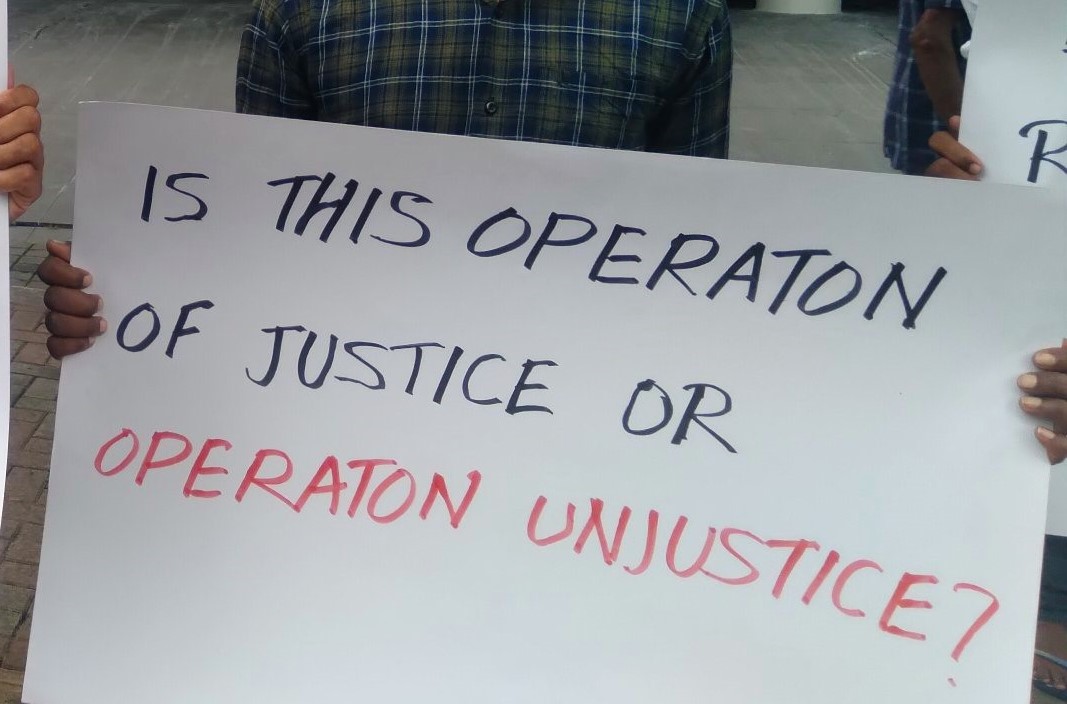A group going by the name “The People Aggrieved by the Yukthiya (Justice) Operation” comprising people who have been affected by the ongoing islandwide anti-drug and -organised crime operation Yukthiya, yesterday (8) sought the Human Rights Commission of Sri Lanka’s (HRCSL) intervention in the form of a set of guidelines for the Police in order to prevent the illegal and unethical acts said to be taking place under the said operation.
Noting that the Yukthiya operation should not be allowed to abuse the law and undermine the rule of law, which the group said would result in serious risks to the people’s safety, they stressed that the HRCSL should immediately intervene to address these concerns, thereby protecting the fundamental rights (FR) of citizens. Their letter addressed to the HRCSL read: “Acting in a manner that violates the basic principles of the Constitution and of the criminal law is an unfortunate situation, and is a serious undermining of the rule of law. Therefore, we request the HRCSL to issue the Police with the necessary recommendations and guidelines to conduct the said operation in a manner that is democratic and just and protects the existing law and citizens’ FR, as per the powers vested in the HRCSL.”
In this regard, the Committee for the Protecting the Rights of Prisoners (one organisation that is a part of the said group) Chairman, attorney Senaka Perera, told The Daily Morning: “The idea of the Yukthiya operation is good. We also believe that crimes and drug rackets should be combatted. However, this operation should be taken to the right track. It should be conducted in a lawful manner. There is a Constitution, a Code of Criminal Procedure and also a Police Ordinance. If these laws are not adhered to, that poses a threat to the people’s lives and rights.”
He further said that the group’s demands are based on a number of instances of human rights violations that have taken place during the Yukthiya operation. Among them are the Police in many cases not acting in accordance with the Drug Dependant Persons (Treatment and Rehabilitation) Act, No. 54 of 2007 when referring persons for rehabilitation, many arrestees being labelled as offenders by the media despite the constitutionally recognised “presumption of innocence” principle, the issuance of statements that imply that arrestees’ properties have been confiscated without having sought court proceedings regarding such properties, demolishing buildings without having obtained the necessary court orders, and having previous cases and being out on bail being considered as criteria for arrest. What is more, Perera expressed concerns about the Police taking decisions about matters that should ideally be evaluated by the Judiciary, which he said sometimes seem to go beyond the Police’s powers. With regard to sending those addicted to drugs for rehabilitation too, Perera pointed out that the Police seem to be taking decisions at their own discretion, thereby disregarding legal provisions that require the intervention of a medical professional when dealing with an addict.
Excerpts from “Yukthiya’s ‘victims’ seek HRCSL intervention” published in The Morning.
